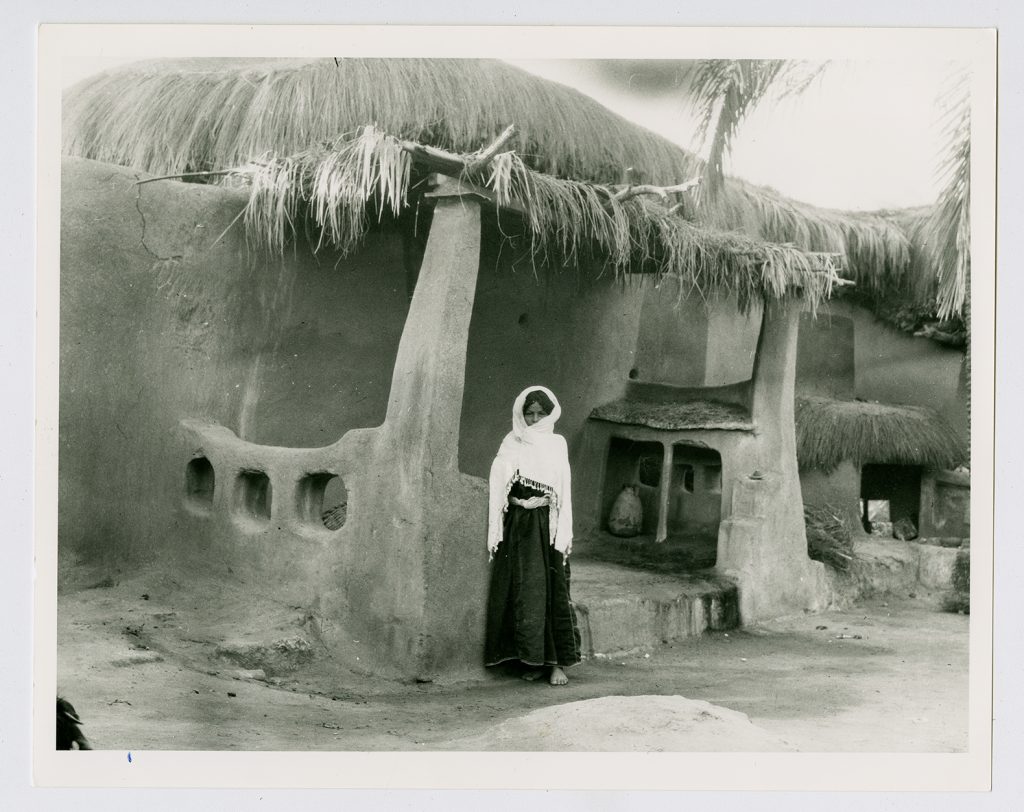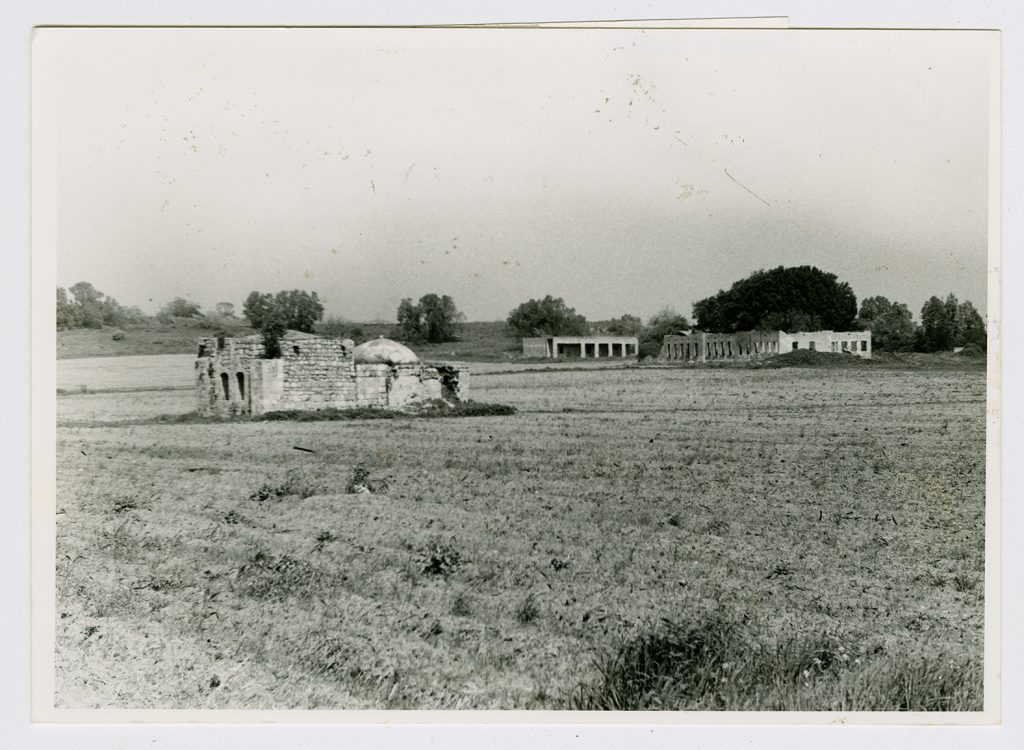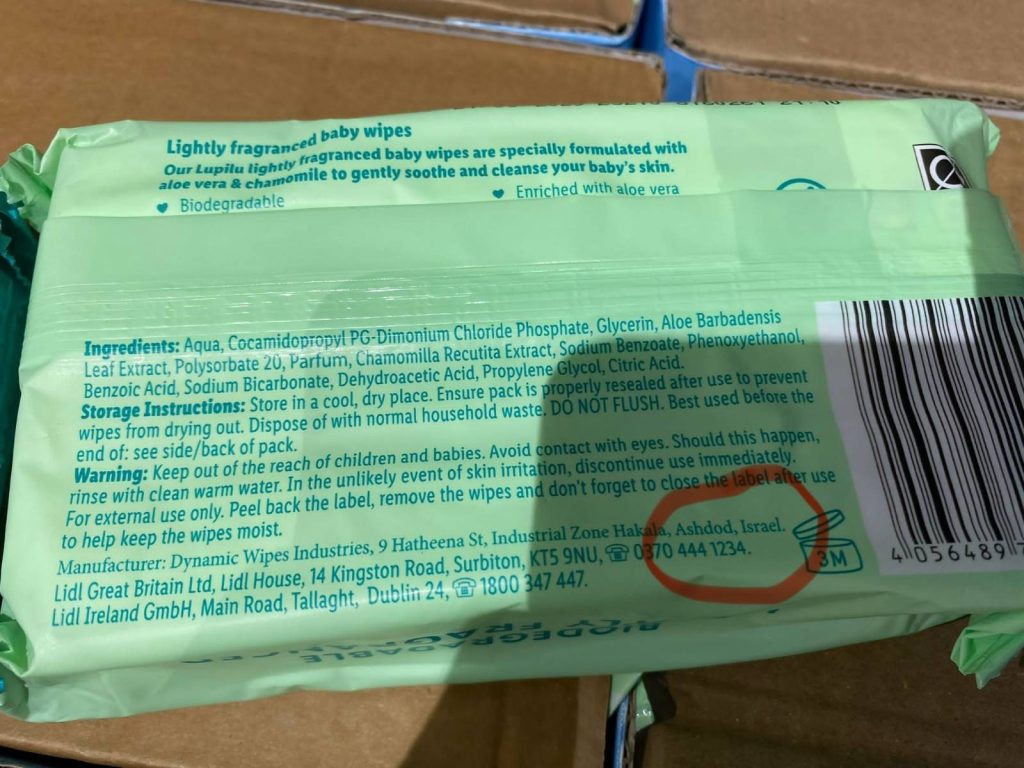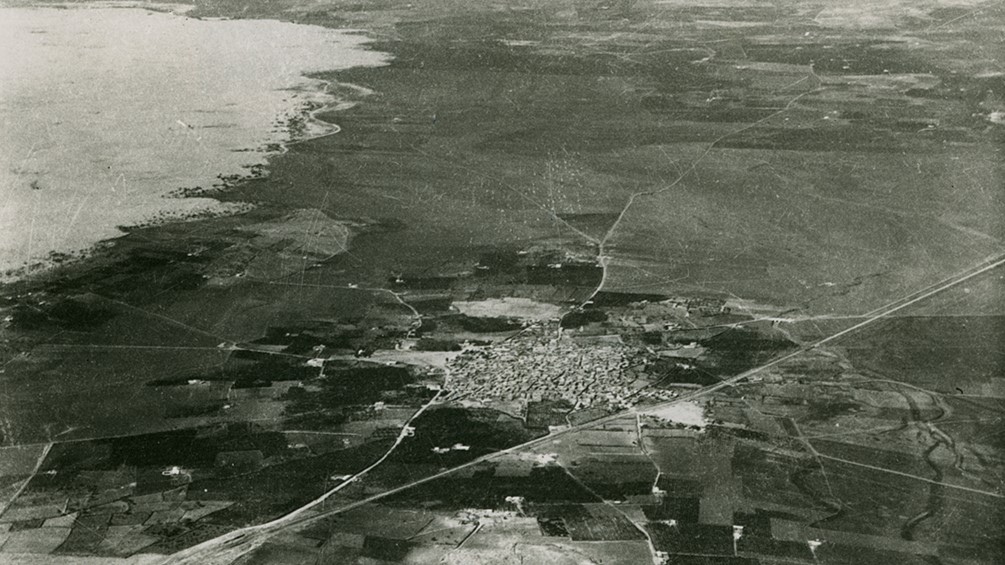Lupilu baby wipes have become the target of a nationwide campaign, as part of the broader BDS movement targetting Israeli goods. As the campaign escalates, it is worth looking back at the history of the land on which they are produced to understand why they are an important target of the BDS movement in Ireland.
The story of Ashdod, where the factory is located, is a reminder that Israeli goods, no matter how trivial and everyday, rely on the murder and forced displacement of Palestinians for the infrastructure needed to manufacture them.
In 1948, the area that would become the Israeli city of Ahsdod was the site of Isdud, a Palestinian town in the Gaza district with a population of just over 5,300 people. Of course, Isdud’s history began long before 1948.
In her 2005 book, Palestine: A Guide, journalist Mariam Shanin notes that Isdud was a continuous settlement from the 17th century BCE until the Nakba. Located near the coast and along the main route between Palestine and Egypt, it was an integral part of international trade in the region for centuries.

The rich archaeological history of Isdud is beyond the scope of this article, but I would encourage you to explore it nonetheless, as it makes the injustice of what as to happen in the last century even more stark.
Due to its strategically important location, Isdud was a central to the 1948 war, with the Egyptian Sixth Battalion setting up position there in May. The following month, follwing an Israeli ground invasion, most of the local population fled.
That October, the Egyptians were forced to retreat after three nights of bombing by the Israeli Air Force. Shortly after, 300-500 residents of Isdud were brought out onto the street by Zionist forces. Males over 17 were taken prisoner, while women, children and the elderly were forced south to Majdal.
Abdullah Zaqut, a Palestinian teacher, recalls that in Majdal “there was a curfew”.
We lived in a ghetto. Go out to work with guards, and return with guards.
It wasn’t long before they were forced south again, mostly to Gaza.
Before the 1948 war and Nakba, Isdud was part of land that had been allocated to an Arab state of Palestine by the United Nations Partition Plan for Palestine.
Isdud did not become part of Israel through diplomacy or international relations; it was taken by force. It was taken by bombs and it was taken by the forced expulsion of those who would not flee.
In the 1950s, Zionist settlements were formed in and around Isdud. In 1956, Ashdod was officially established as a city. In the Israeli version of events, it is modern, progressive, and industrial.
Robert Chaim, one of the founding settlers, claimed when he arrived that “there was only sand and sea”. He went on to become the city’s first mayor and proudly claimed in the same interview that “this is a city that has never know ethnic discrimination”.

It is likely that some of the same families who were displaced in 1948 have once again been displaced by bombs again in 2024.
What is certain is that the same imperialist and capitalist interests that drove the destruction of Isdud in 1948, are doing the same in Gaza in today.
We have already seen greedy developers and real estate moguls begin to advertise Gazan land as if it was theirs to give away. While it may seem impossible to imagine that people could forget Gaza, it was only eight years after the Nakba that Haim arrived in Isdud to find only “sand and sea”.
The erasure of Palestinian history has always been a necessary feature of the Zionist project and we must be prepared for them to deploy the same tactics they have always have.
Bear this in mind when you see packs of baby wipes in Lidl made in “Ashdod, Israel” – that Ashdod, Israel would not exist without the depopulation and destruction of Isdud, Palestine. The very production of the wipes is directly linked to the ethnic cleansing of Palestine in 1948.
The sale of these wipes contributes to Israel’s economy and therefore funds the apartheid infrastructure of the state, and the ongoing genocide in Gaza.

This is why we call for a boycott of Lupilu baby wipes made in Israel. This is why communities across Ireland have been removing them from the shelves of their local Lidl shops. The people of Ireland will not stand idle in the face of genocide.
From Killarney to Newry, BDS and Palestine solidarity groups have been engaging in direct action-based pressure campaigns to remove Lupilu baby wipes made in Israel from sale in their local Lidl branches.
To get involved, contact you local Palestine group or reach out to BDS Belfast who have been spearheading the campaign.

